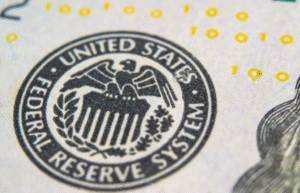#McDonalds #CocaCola #InflationImpact #EconomicTrends #PriceHikes #ConsumerGoods #FinancialNews #CorporateEarnings
Recent financial disclosures and earnings reports have placed a spotlight on how persistent inflation is impacting major corporations, including giants like McDonald’s and Coca-Cola. These companies, known globally for their ubiquitous presence and consumer demand, have begun highlighting the substantial effects of ongoing inflationary pressures on their businesses. Despite various challenges, both corporations have managed to navigate through these turbulent economic conditions, albeit not without significant adjustments to their strategies and operations.
McDonald’s, a global leader in the fast-food industry, has been particularly vocal about the effects of inflation on its operational costs and overall profitability. The company has seen a notable increase in expenses across several areas, including raw materials, labor, and logistics. In response, McDonald’s has had to adjust its prices, a move that’s carefully calculated to balance maintaining customer loyalty while also safeguarding profit margins. The impact of these adjustments is closely watched by investors and analysts, as it provides insights into consumer behavior and spending patterns in response to inflation. Moreover, McDonald’s strategic responses, such as menu optimization and investment in digital platforms, serve as a testament to the company’s resilience and adaptability in the face of economic challenges.
Coca-Cola, on the other hand, has its narrative intertwined with the global supply chain complexities and the varying rates of inflation across different regions. As a beverage behemoth, Coca-Cola operates in virtually every country around the world, making it particularly susceptible to fluctuations in the cost of commodities like sugar, as well as changes in labor costs. The company’s recent earnings reports have shed light on how it has leveraged pricing strategies and product mix adjustments to mitigate the impacts of inflation. Coca-Cola’s ability to pass on some of these increased costs to consumers while still maintaining demand underscores the strength of its brand and its products’ inelasticity of demand. Additionally, Coca-Cola’s innovations in packaging and marketing are pivotal in managing consumer expectations and sustaining sales volume.
The experiences of McDonald’s and Coca-Cola provide a microcosm of the broader challenges facing consumer goods companies worldwide. Persistent inflation not only affects operational costs but also influences consumer buying behavior, potentially leading to a preference for cheaper alternatives or decreased brand loyalty. Companies in this sector must therefore employ a mix of strategic pricing, product innovation, and market expansion to maintain growth and profitability. As inflation continues to shape the economic landscape, the strategies deployed by McDonald’s and Coca-Cola will likely serve as valuable case studies for other companies aiming to navigate the complexities of high inflation. The situation also underscores the importance for companies to have flexible, adaptive strategies that can respond to changing economic conditions.






Comments are closed.